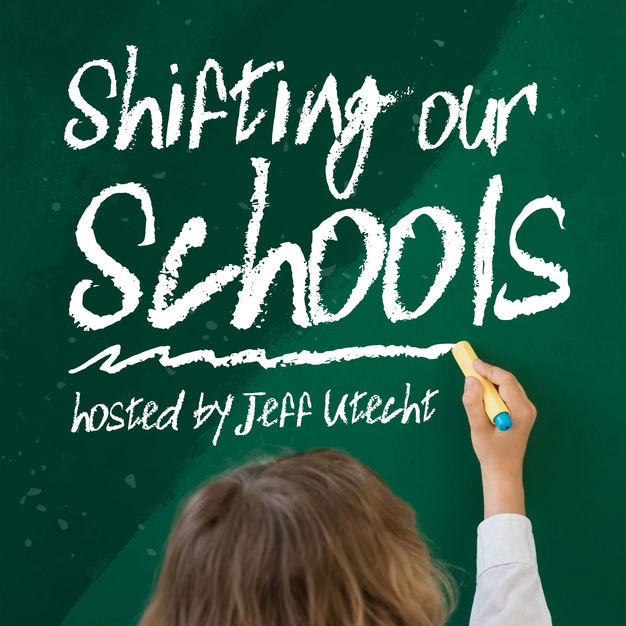
Shifting Our Schools - Education : Technology : Leadership
Jeff Utecht
Jeff Utecht leads discussions with educators from around the globe on how educators and administrators are shifting their schools to meet the needs of today's learners.
- 37 minutes 58 secondsWays librarians are leading the AI Literacy Conversation
Libraries can be a space for community building and idea exchange. During this new era of AI–what is already happening in the library?
That's what we explore this week with three different perspectives on the way the Librarian is a critical voice on all things AI.
Ready to meet our guests?
Zakir Hossain is a Teacher-Librarian and independent researcher. He’s passionate about academic integrity and artificial intelligence literacy development. Born and raised in Bangladesh, Zakir has lived and worked in Vietnam, Saudi Arabia, Switzerland and the Netherlands. Zakir can be reached via @DuZakir on X and [email protected]
Danny Glasner has been a technology coach, learning support, and for the past seven years, a library/media specialist otherwise known as a teacher-librarian. He has worked in schools for the past 21 years in Toronto, Istanbul, Hanoi, Zhuhai, Beijing, Phuket (as the whole school librarian for UWC Thailand), Ho Chi Minh City, and now Tirana, Albania. The library brings many of Danny’s passions together; love of reading, critical and creative thinking, artificial intelligence, technology in general, diversity, justice, belonging, sustainability, mindfulness, and global citizenship. The library Is a safe space where the entire learning community is made to feel welcome and seen. Danny utilizes his network to bring people together, to help students connect ideas, and to amplify their actions by broadening their audience. His passion for connecting people and ideas inspired him to co-found inTLlead.org, an international grassroots teacher-librarian leadership group, and #inTLchat, a hashtag and chat that connects librarians all over the world. He is the founding coordinator of 21st Century Library Connection Miniconference and the library strand for 21CLHK Main Conference held in Hong Kong, February 12-15 2025.
https://www.linkedin.com/in/danny-glasner-99a833268/
https://www.linkedin.com/groups/14262254/
https://www.instagram.com/dannyglasner/
https://medium.com/@dannyglasner
Heeru Bhojwani is a dedicated librarian with over 25 years of experience, blending her expertise in literacy, research, and digital innovation. Beginning her journey in primary schools with a focus on literacy, she later advanced to secondary education, promoting research skills, student voice, and choice. Heeru is the co-founder of the Liferarian Association, where she coaches librarians, building their skill sets and supporting underserved communities by helping fund library initiatives. She established the National Jarul Book Award to honor excellence in children’s literature and has published three multilingual anthologies representing over 10 languages. Heeru has presented at NESA, ISTE, and collaborated with KSIPD, running workshops that inspire librarians.
Liferarian.com
https://www.linkedin.com/in/heeru-bhojwani-76975011
Huge thanks to our sponsors:
https://creativity-week.squarespace.com/
20 January 2025, 9:03 am - 30 minutes 45 secondsRethinking the IQ test with Pepper Stetler
On the show this week Jeff and Tricia talk with author, Pepper Stetler about the new book
A Measure of Intelligence: One Mother's Reckoning with the IQ Test.
Pepper Stetler is a Professor of Art History at Miami University in Oxford, Ohio. She writes extensively on issues facing people with intellectual disabilities and their caregivers. Her writing has appeared in The New York Times, The Atlantic, Slate, The Progressive, the Ploughshares blog and Gulf Coast.
Stetler also researches and writes about the art and photography of early twentieth-century Europe and the United States. In 2022, she was awarded an Art Writer’s Grant from the Andy Warhol Foundation. She has written catalog essays for exhibitions at the Museum of Modern Art in New York and the Los Angeles County Museum of Art. In 2022, she curated Craft and Camera: The Art of Nancy Ford Cones, the first museum scale retrospective of the Cincinnati-based photographer.
Stetler grew up in Kansas City, Missouri. She received her BA from Barnard College, Columbia University and her MA and Ph.D. from the University of Delaware. She lives in Oxford, Ohio with her husband and her daughter, Louisa, whose general awesomeness inspired her to write A Measure of Intelligence.
Learn more about the book and connect with our guest.
https://www.pepperstetler.com/
Thank you to our show sponsor
13 January 2025, 9:28 am - 1 hour 14 minutesSpecial episode: Tricia talks AI
This week Shifting Schools is sharing another podcast with you:
🎙️ In this episode of Women Talkin' 'Bout AI, host Dr. Kimberly Becker welcomes Tricia Friedman, an all-around educational innovator who's been doing really future-forward and inclusive work in AI literacy and community building. In this powerful conversation, international educator and neuroqueer futurist Tricia uncovers the profound potential of AI in education while maintaining authentic human connections.
Key Insights:
-The critical need for AI literacy in K-12 and higher education
-Reimagining learning assessment in the age of generative AI
-How technology can deepen human understanding and creativity
-Innovative approaches to integrating AI without losing human connection
📚 Content Discussed in This Episode:
0:00 - Introduction
5:30 - AI in Education
15:45 - Challenges in K-12 Learning
25:20 - Reimagining Assessment
35:10 - Personal AI Experiments
45:30 - Future of Technology and Learning
Want to download the free guide Tricia talked about at the start of the episode?
6 January 2025, 9:03 am - 48 minutesIs taking play seriously the secret to stellar leadership?
In this conversation, Tricia and Joel Birch explore the transformative power of Lego Serious Play as a facilitation method. Joel shares his background in music and comedy, discussing how these experiences inform his approach to facilitating workshops. They get into the importance of play in communication, the dynamics of team interactions, and the unique benefits of virtual facilitation. The discussion highlights the role of a facilitator in creating a safe space for expression and the similarities and differences between K-12 education and corporate environments. Joel emphasizes the need for skilled facilitators to guide participants through the process, ensuring that everyone has a voice and can contribute meaningfully to the conversation. In this conversation, Joel Birch discusses his journey into facilitation, emphasizing the importance of inquiry learning and collaboration in education. He shares insights on engaging parents and caregivers, the role of play in building relationships, and innovative techniques for strategic planning and interviews in schools. The discussion highlights the need for creativity in educational practices and the value of creating low-stakes environments for meaningful conversations.
➡️ Ready to connect with Joel?
🖍️ Learn more about Crayola Creativity Week!
https://creativity-week.squarespace.com/
👏🏻 Thank you to our show sponsor
Take-Aways from this episode:
Collaboration in education can alleviate change fatigue.
Play is essential for learning and relationship building.
Engaging parents in the educational process is crucial.
Facilitation can help capture diverse ideas in a community.
Innovative interview techniques can reveal true candidate potential.
Creating low-stakes environments fosters open communication.
Using physical objects can facilitate deeper conversations.
30 December 2024, 1:15 pm - 34 minutes 33 secondsChanging perceptions of manufacturing in schools
In this conversation, Jeff Utecht and John Gardner discuss the critical role of manufacturing in the American economy and the importance of education in preparing students for careers in this field. Gardner emphasizes the need to change perceptions of manufacturing, highlighting its high-tech nature and the lucrative opportunities it offers. They explore how K-12 education has shifted away from vocational training, leading to a shortage of skilled workers. The discussion also covers the importance of real-world applications in education and creating pathways for students to succeed in manufacturing careers.
Key highlights of this episode include:
+The manufacturing industry faces a potential shortage of 2.1 million jobs by 2030. +Education must adapt to prepare students for future careers, not past roles. +Manufacturing is a viable and lucrative career path for students. +Changing perceptions of manufacturing is essential for attracting new talent. +Real-world applications in education can engage students and enhance learning. +Vocational training should be integrated back into K-12 education. +Students need to see the progression of careers in manufacturing. +Local businesses can play a role in supporting education and training.
Learn more about John's book:
Thank you to our show sponsor
23 December 2024, 9:10 am - 40 minutes 44 secondsHelp all learners bring more creativity into 2025
Creativity is essential. On the show this week we loved learning with Crayola's Cheri Sterman. Cheri is here to tell us all about the power of the upcoming Crayola Creativity Week.
Educators and families can register free for this event:
https://creativity-week.squarespace.com/
The conversation centers around Crayola Creativity Week, a free program designed to inspire and celebrate children's creativity. Cheri Sterman discusses the importance of nurturing creativity in children, the role of parents and educators in fostering creative confidence, and practical ways to integrate creativity into daily life. The event features a lineup of celebrity guests and aims to engage millions of children worldwide. The discussion emphasizes creativity as a vital life skill that benefits individual well-being and community building.
Ready to learn more about our amazing guest?
Cheri Sterman is a nationally recognized leader in child development and education, and a passionate advocate of creativity and the influence it has on a child’s future potential. Cheri most recently helped Crayola launch its advocacy initiative, Campaign for Creativity, which challenges conventional perceptions about creativity, sparking a new dialogue about the value of creativity and helping parents incorporate more creative moments into their children’s lives.
Cheri has served as vice-chair of the Partnership for 21st Century Learning and on the executive boards of the National Association for the Education of Young Children and the National Child Development Council. Cheri helps educators and community leaders expand their creative thinking. She hosts Crayola monthly online programs including: The Art of Learning, and Read Along-Draw Along where she interviews authors, illustrators, art therapists, and educators.
Cheri has served as a consultant to the National Governors Association, White House Commission on Children and Youth, Children’s Defense Fund, and the President’s Committee on the Arts and Humanities’ Turn-Around Schools Initiative.
You can connect with her on LinkedIn:
https://www.linkedin.com/in/cheri-sterman-6862351ba/
Learn more about this week's show sponsor:
16 December 2024, 9:11 am - 27 minutes 15 secondsWhat we can learn from Outlier schools
Erich Bolz is deeply versed in the field-tested Powerless to Powerful transformation frameworks developed by Gonzaga University professors Chuck Salina and Suzann Girtz which, when implemented with fidelity, are proven to increase student achievement and staff satisfaction. Utilizing cognitive coaching approaches, Erich helps school leaders and central office administrators (including Special Education directors) make sense of their day-to-day challenges while fostering transformational breakthroughs in both their work and personal lives.
Today on the show Erich and Jeff have a conversation about effective educational transformation. They also emphasize the importance of servant leadership and mission clarity in creating a positive school culture. The conversation also touches on leadership coaching, data-driven decision-making, and strategies for narrowing the achievement gap. They conclude by discussing the challenges of recruiting and retaining teachers in the current educational landscape.
Connect with Erich, his work and podcast:
https://podcasts.apple.com/ca/podcast/outliers-in-education-from-cee/id1577590456
9 December 2024, 9:22 am - 47 minutes 6 secondsThe potential of AI for multilingual learners
In this conversation, Jeff Utecht and Professor Brent Warner explore the intersection of AI and education, particularly focusing on multilingual learners. They discuss how AI can empower students to take control of their learning, the innovative techniques for vocabulary building through prompting, and the importance of teaching prompt engineering skills. Brent shares insights on redesigning rubrics to be more equitable and effective, while also emphasizing the importance of transparency in using AI in educational settings. The conversation culminates in Brent's upcoming book aimed at helping teachers integrate technology into their classrooms for multilingual learners.
Learn more about our guest:
Brent Warner is an award-winning community college professor focusing on integrating technology and innovation into the language learning process. He works with teachers and organizations across the globe to provide practical advice for helping English Language Learners take advantage of tech to help them communicate more clearly. He blogs about technology integration in the ESOL classroom for TESOL International, and he is the co-host of The DIESOL Podcast, focusing on innovation in ESOL.
https://brentgwarner.com/book/
https://www.tesol.org/blog/posts/using-ai-to-build-vocabulary-3-approaches/
Thank you to our show sponsor:
2 December 2024, 9:14 am - 30 minutes 23 secondsA New Era in MTSS with AI
In this episode of Shifting Schools, Jeff Utecht interviews Jose, founder and CEO of Neulight, about the transformative potential of AI in education. They discuss IntelliTier, which enhances the Multi-Tiered System of Supports (MTSS) framework by simplifying data collection and providing personalized intervention strategies for students. Jose shares insights on the importance of user experience for teachers, the feedback received from early adopters, and the future of data-driven decision-making in education. The conversation emphasizes the need for technology to support educators in their roles, allowing them to focus more on student interaction rather than administrative tasks.
Jose's journey is nothing short of inspiring. As the son of Salvadoran immigrants who fled civil war, he's risen to become a tech innovator at giants like Microsoft and Netflix. Now, he's on a mission to revolutionize education through technology.
During his nearly decade-long tenure at Netflix, Jose led groundbreaking projects, including initiatives that brought in millions of new subscribers. But his most exciting venture is yet to come.
Learn more:
Connect with Jeff and Tricia and look out for more ways to learn with them:
https://www.shiftingschools.com/
25 November 2024, 9:33 am - 35 minutes 51 secondsAsking better questions about what is possible with AI
In this conversation, Tricia and Laura discuss the intersection of ableism, artificial intelligence, and education. They explore how AI can serve as an assistive device to enhance access and equity, particularly in educational settings. Laura shares personal experiences and insights on how AI can foster curiosity and agency in learners, especially those with disabilities. They also touch on the importance of community support and sharing knowledge to create a more inclusive environment for all.
Ready to learn more about our amazing guest?
Laura Germishuys is a speaker and disability consultant, focusing on accessibility, workplace accommodations and transition coaching. She leverages AI to find creative solutions in the disability space. Laura was a learning professional for seven years specialising in Diversity, Equity and Inclusion, and believes strongly in the transformative potential of technology for equity in education. She cares deeply about animal rights, sustainable development, and social justice.
https://www.linkedin.com/in/laura-germishuys-she-her-781278104/
Thank you to our show sponsor for supporting us
18 November 2024, 12:38 pm - 46 minutes 43 secondsWhat can we learn about AI from an archivist?
Reed Hepler discusses the changing role of archival work in the era of generative AI. He explains that while some may think archives and AI are incompatible, there are actually many ways in which AI can be useful in archival work. Reed also demystifies the role of archivists, highlighting their responsibility in acquiring, organizing, preserving, and interpreting historical records. He emphasizes the importance of structure, objectives, and perspectives in creating archives and offers insights into how AI can assist in the archival process. Reed also discusses the skills required for archival work, including curiosity, attention to detail, and the ability to find interest in seemingly mundane tasks. He compares generative AI tools to musical instruments, emphasizing the human element in using these tools effectively. Reed also advocates for open access and equitable access to information in education.
Connect with our guest:
Reed Hepler is a digital initiatives librarian, instructional designer, artificial intelligence practitioner and consultant, and M.Ed. student at Idaho State University in the Instructional Design and Technology program. He obtained a Master’s Degree in Library and Information Science, with emphases in Archives Management and Digital Curation, from Indiana University. He received a Bachelor’s Degree in History with minors in Anthropology and Religious Studies as well as a Museum Certificate. He has worked at nonprofits, corporations, and educational institutions encouraging information literacy and effective education. Combining all of these degrees and experiences, Reed strives to promote ethical librarianship and educational initiatives. Currently, Reed works as a Digital Initiatives Librarian at a college in Idaho and also has his own consulting firm, heplerconsulting.com. His views and projects can be seen on his LinkedIn page or his blog, CollaborAItion, on Substack.
Contact him at [email protected] for more information.
heplerconsulting.com
reedhepler.substack.com
Thank you to our sponsors!
Learn more about the upcoming FETC event:
11 November 2024, 9:08 am - More Episodes? Get the App
- http://sospodcast.org
- en-us
Your feedback is valuable to us. Should you encounter any bugs, glitches, lack of functionality or other problems, please email us on [email protected] or join Moon.FM Telegram Group where you can talk directly to the dev team who are happy to answer any queries.
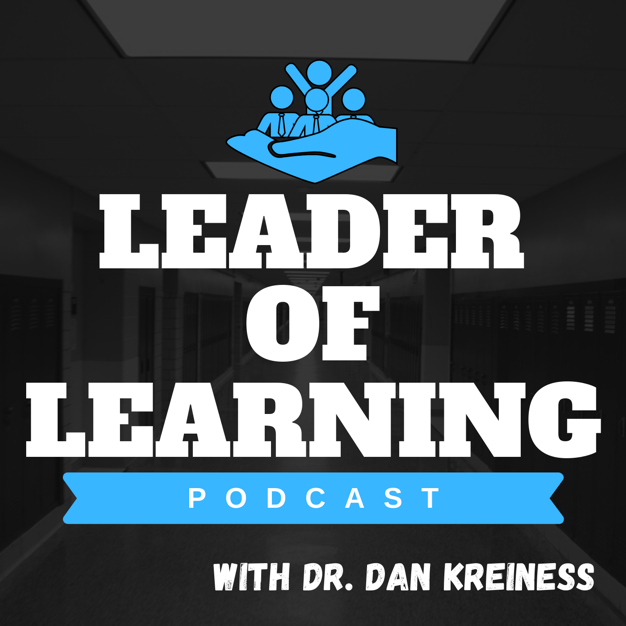 Leader of Learning
Leader of Learning
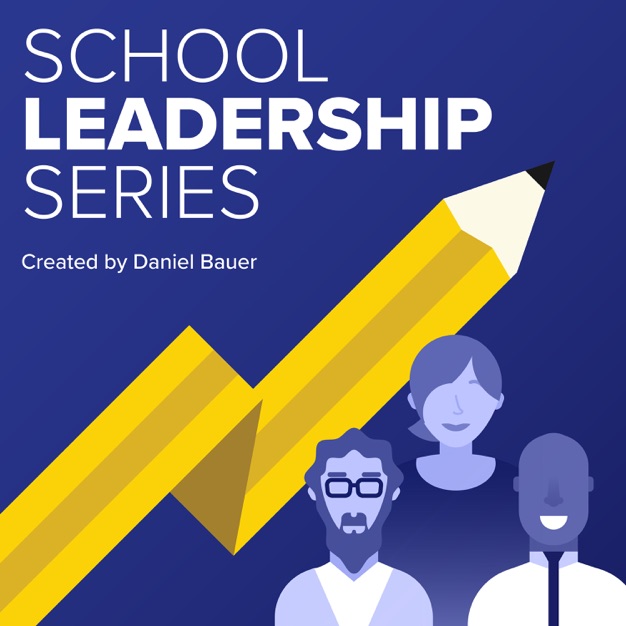 School Leadership Series with Daniel Bauer
School Leadership Series with Daniel Bauer
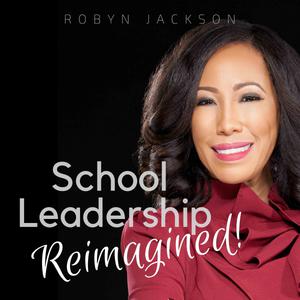 School Leadership Reimagined
School Leadership Reimagined
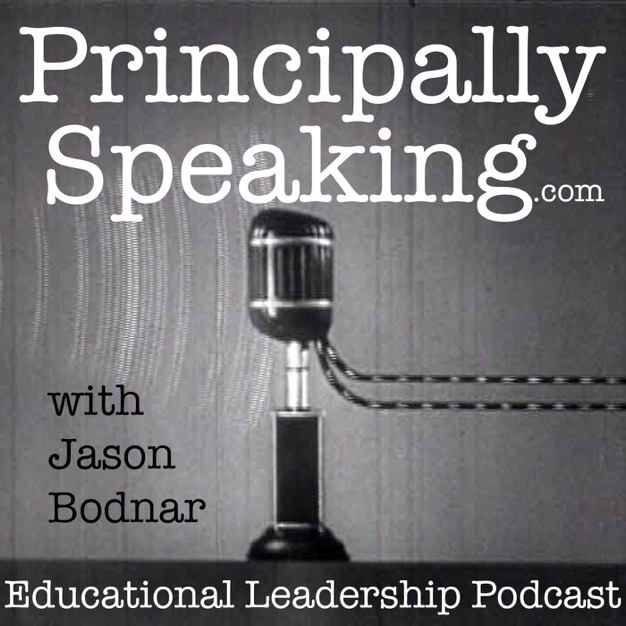 Principally Speaking
Principally Speaking
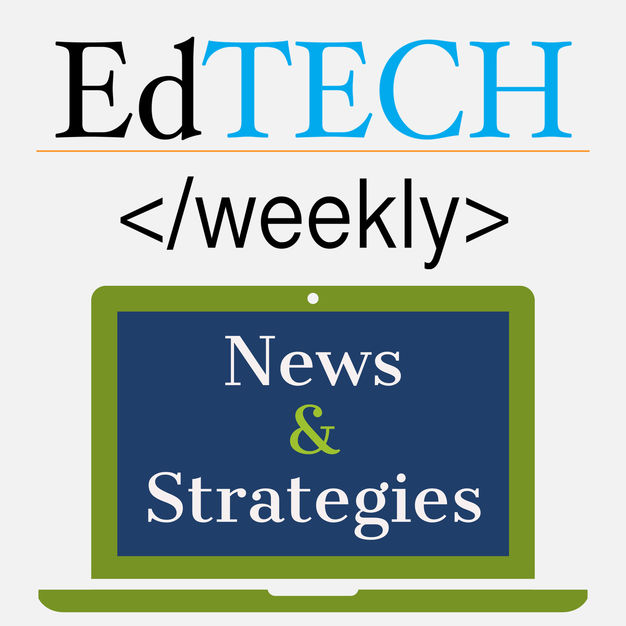 Ed Tech Weekly
Ed Tech Weekly
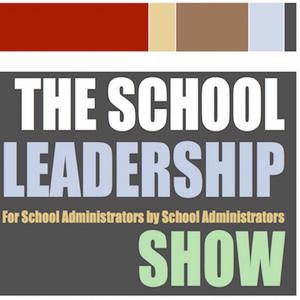 The School Leadership Show
The School Leadership Show